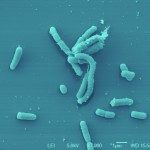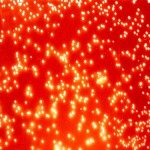Lien vers Pubmed [PMID] – 31580794
Microb Genom 2019 Oct;
The genus Yersinia comprises species that differ widely in their pathogenic potential and public-health significance. Yersinia pestis is responsible for plague, while Yersinia enterocolitica is a prominent enteropathogen. Strains within some species, including Y. enterocolitica, also vary in their pathogenic properties. Phenotypic identification of Yersinia species is time-consuming, labour-intensive and may lead to incorrect identifications. Here, we developed a method to automatically identify and subtype all Yersinia isolates from their genomic sequence. A phylogenetic analysis of Yersinia isolates based on a core subset
of 500 shared genes clearly demarcated all existing Yersinia species and uncovered novel, yet undefined Yersinia taxa. An automated taxonomic assignment procedure was developed using species-specific thresholds based on core-genome multilocus sequence typing (cgMLST). The performance of this method was assessed on 1843 isolates prospectively collected by the French National Surveillance System and analysed in parallel using phenotypic reference methods, leading to nearly complete (1814; 98.4 %) agreement at species and infra-specific (biotype and serotype) levels. For 29 isolates, incorrect phenotypic assignments resulted from atypical biochemical characteristics or lack of phenotypic resolution. To provide an identification tool, a database of cgMLST profiles and reference taxonomic information has been made publicly accessible (https:// bigsdb. pasteur. fr/ yersinia). Genomic sequencing-based identification and subtyping of any Yersinia is a powerful and reliable novel approach to define the pathogenic potential of isolates of this medically important genus.










